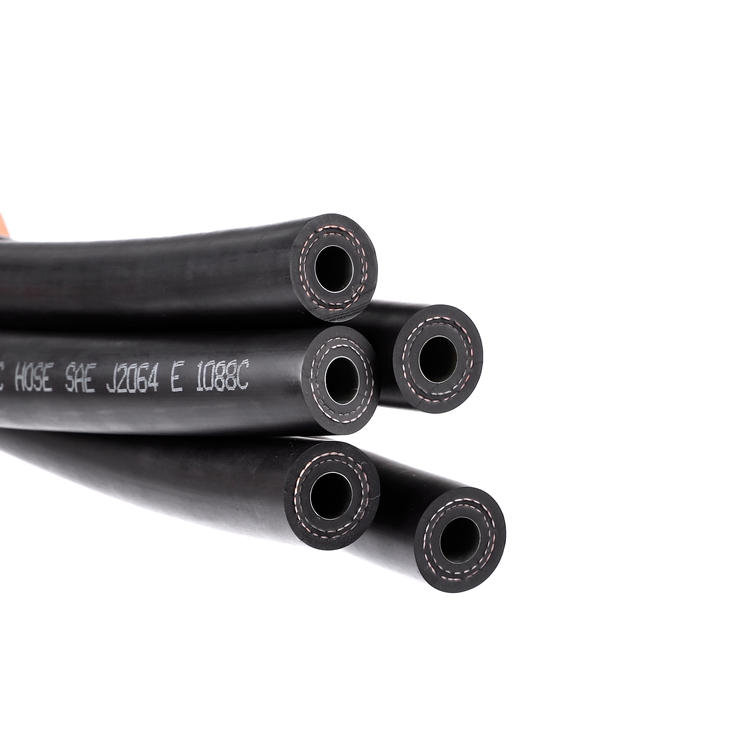petrol pipe
Okt . 04, 2024 23:30 Back to list
petrol pipe
Understanding Petrol Pipes Importance, Material Choices, and Maintenance
In the world of automotive engineering and fuel systems, the petrol pipe plays a crucial role in the safe and efficient transportation of fuel from the tank to the engine. Although often overlooked, the petrol pipe is an essential component that ensures your vehicle runs smoothly and efficiently. This article delves into the significance of petrol pipes, the materials commonly used, and the importance of regular maintenance.
The Role of Petrol Pipes
Petrol pipes, also known as fuel lines, are responsible for carrying petrol from the fuel tank to the engine's fuel injection system. A reliable petrol pipe not only facilitates the flow of fuel but also prevents leaks and maintains pressure within the system, ensuring optimal engine performance. Additionally, these pipes must withstand various conditions, including fluctuating temperatures and exposure to corrosive substances.
Failure of a petrol pipe can lead to serious issues, including fuel leaks, engine performance problems, and even fires. Therefore, understanding their construction and maintenance is vital for any vehicle owner or enthusiast.
Materials Used for Petrol Pipes
Petrol pipes can be made from various materials, each offering distinct advantages and disadvantages
1. Rubber Traditionally, many petrol pipes were made from rubber due to its flexibility and ease of installation. However, rubber can degrade over time, especially when exposed to the chemical compounds present in petrol. This can lead to cracks and leaks, making timely replacement necessary.
2. Plastic Some modern vehicles utilize plastic fuel lines, which are lightweight and resistant to corrosion. While plastic offers longevity, it can be susceptible to damage from impacts and extreme temperatures.
3. Metal Steel and aluminum are commonly used for petrol pipes in high-performance vehicles. Metal pipes are sturdy and can handle higher pressures, but they can be heavier and may corrode over time if not properly protected.
petrol pipe

When choosing petrol pipes, it’s essential to consider the vehicle's specifications and the type of fuel being used. Some materials may be more appropriate for specific types of engines or driving conditions.
Importance of Maintenance
Maintaining petrol pipes is crucial for ensuring the safety and efficiency of a vehicle. Here are some practical maintenance tips
1. Regular Inspections Periodically check petrol pipes for signs of wear and tear, such as cracks, bulges, or visible leaks. Make it a habit to inspect fuel lines whenever you do routine maintenance on your vehicle.
2. Fluid Leaks Keep an eye on any fluid leaks under your vehicle. If you notice a pooling of petrol or any strong fuel odor, investigate immediately. Leaks not only waste fuel but can also lead to hazardous situations.
3. Timely Replacement If you identify any damage during your inspections or notice any changes in engine performance, it may be time to replace your petrol pipes. Always consult a professional mechanic to ensure that replacements are done correctly.
4. Use Quality Parts When replacing petrol pipes, opt for high-quality materials that meet the vehicle manufacturer’s specifications. Low-quality parts may lead to premature failure and can compromise your vehicle's overall performance.
5. Protect from Elements Ensure that petrol pipes are routed away from hot engine components and are protected from road debris. The installation of protective shields can help extend the lifespan of the pipes.
Conclusion
In conclusion, petrol pipes are an integral part of any vehicle's fuel system. Understanding their role, the materials used, and the importance of maintenance can significantly impact your vehicle's performance and safety. Regular inspections and timely replacements can prevent serious issues down the line, ensuring that your vehicle remains in optimal working condition. Whether you are a car enthusiast or an everyday driver, being proactive about the maintenance of petrol pipes is a smart and essential practice.
